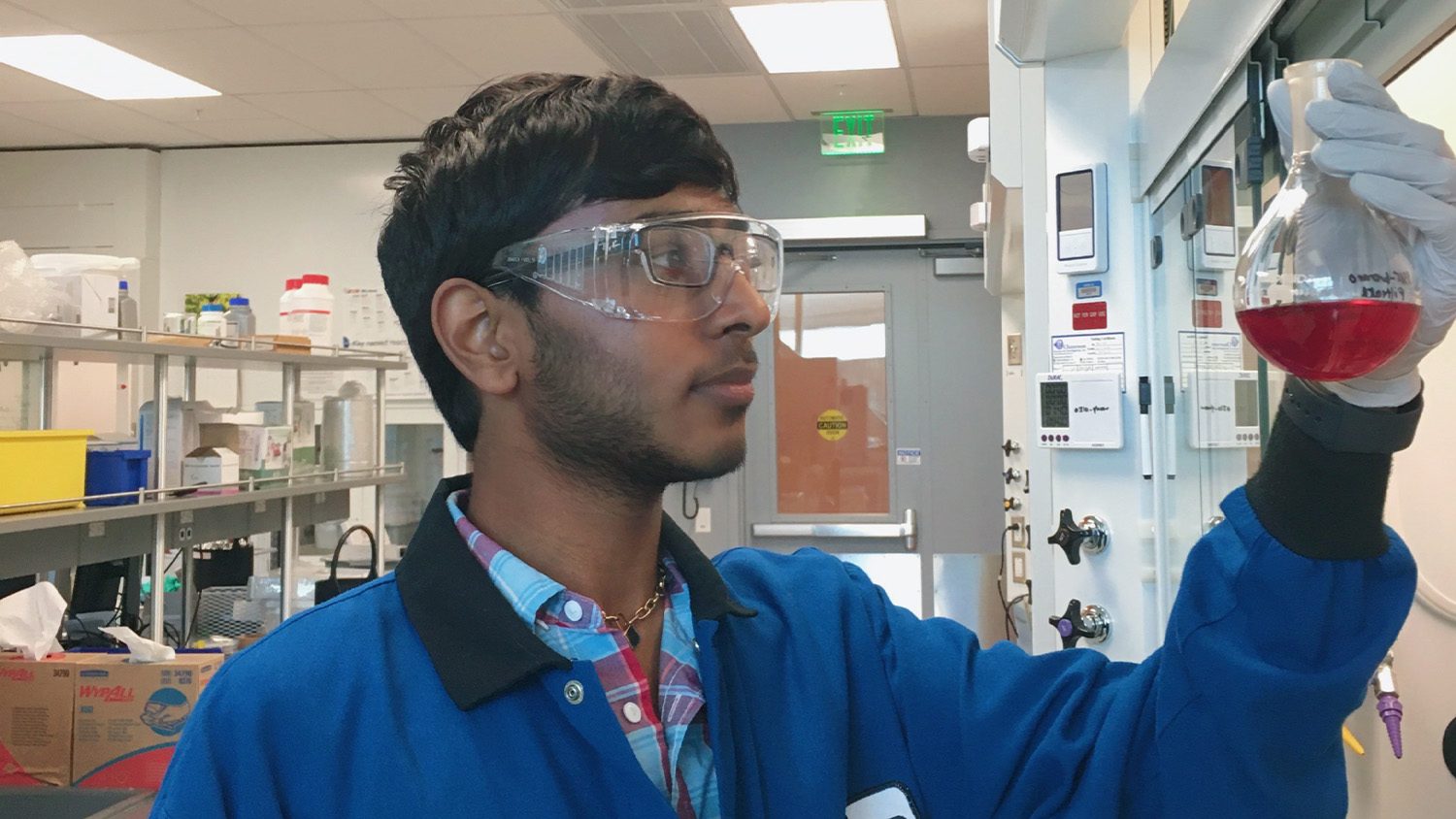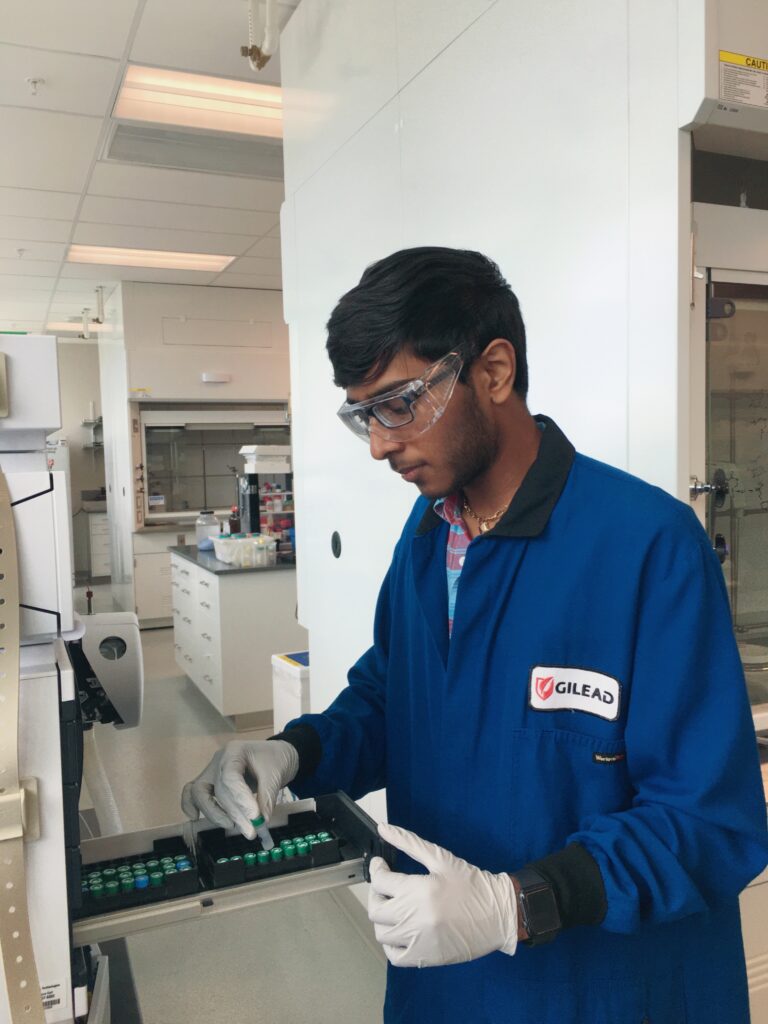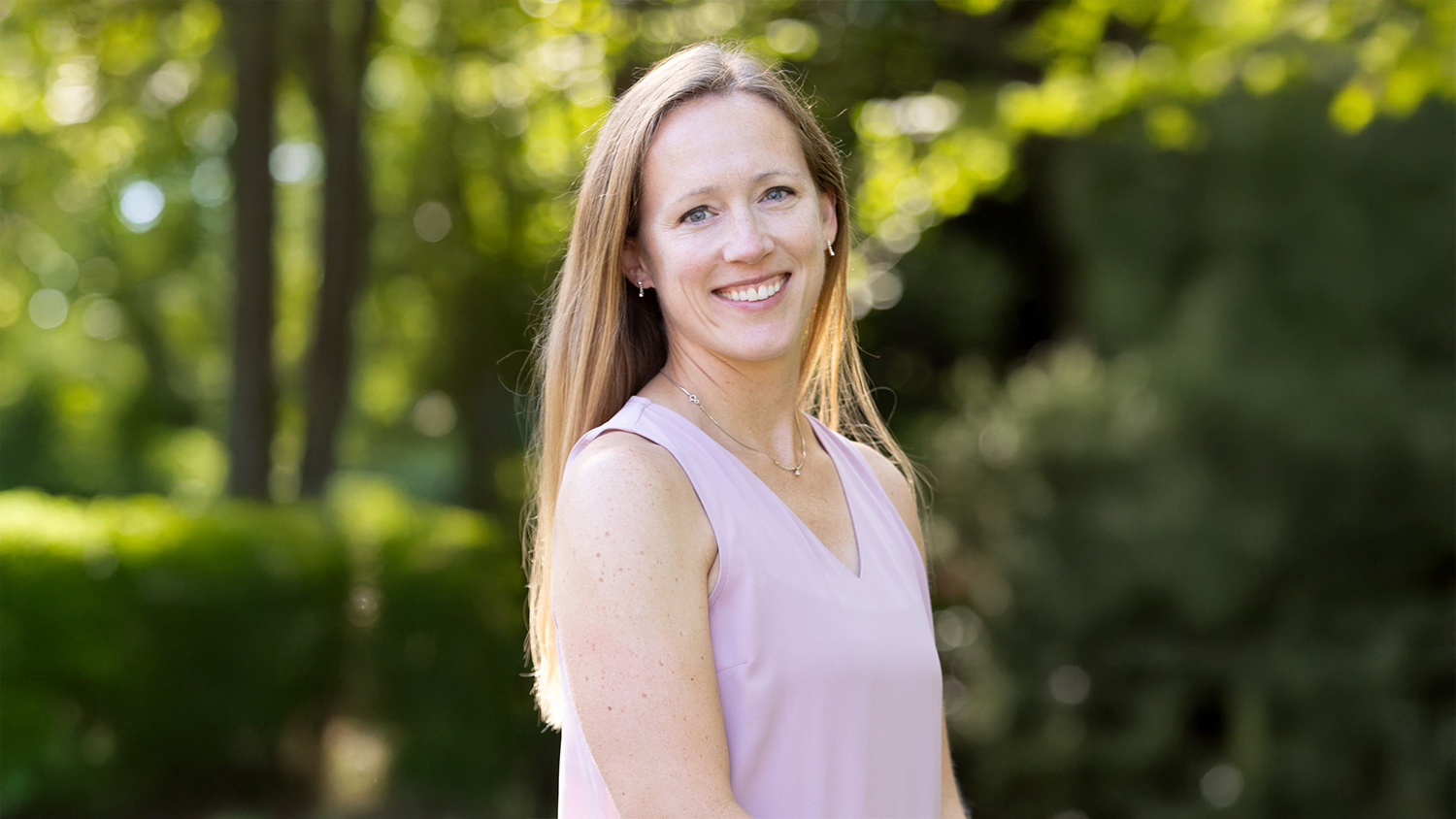Spotlight on Our Students: Kiran Soma
The University Honors Program interviews Kiran Soma about his summer internship with Gilead’s medicinal chemistry team.

What will you specifically be working on and what sparked your interest in your specific line of research?
This past spring, I completed a course on medicinal chemistry (a fantastic class taught by Dr. Jonathan Lindsey) at NC State, and paired with my interests in organic chemistry and experience with natural product synthesis as part of the Pierce Lab, that piqued my interest in the field. Interning on the medicinal chemistry team at Gilead seemed like the perfect way to explore and learn more. Although I can’t provide too many details, I will be working on parent drug synthesis: essentially, modifying and functionalizing our team’s current lead compound(s) in hopes of identifying structures that possess desirable pharmacokinetic characteristics.
What do you hope to learn from this internship?
Given the interdisciplinarity of medicinal chemistry, I’m excited to dive deeper into biology while still advancing my understanding of chemistry. I’m also looking forward to getting a clearer view of the industrial side of chemistry as my background is primarily in academia. Through a wealth of experiences, I hope to expand on my existing knowledge base and help create knowledge, network with fellow student researchers and practiced scientists, and improve my interpersonal and technical skills.
What are the potential applications of the work you’ll be conducting?
The research teams at Gilead discover and evaluate compounds that show potential to advance the treatment of life-threatening diseases — specifically, the research pipeline covers viral diseases, inflammatory diseases and oncology. I’m working on generating compounds that target a particular family of viruses. It’s gratifying to know that what I’m doing may impact people in my own communities and around the world.
What is the most interesting thing you’ve experienced so far while working on this project?
Everything has been incredibly interesting and educational thus far, but I’ll describe some of my favorite moments. Recently, I set up my first ever photochemical reaction using a 3D-printed reactor that a coworker designed, and it was exciting to learn about the mechanism of the process and see it in action. I also used a lyophilizer for the first time a few weeks ago, which allows for compound isolation via sublimation. The wide range of experiences that I’ve had as part of the internship, whether it be using an instrument for the first time or visualizing interactions between a parent compound and target viral agent, has been rewarding and fascinating.

What has been the most challenging? Why?
Developing and maintaining a healthy work-life balance has always been a struggle for me. I’m always thinking about different target ideas and looking into possible routes, and I do like to take time and investigate reactions or biological pathways that are mentioned at office meetings, especially as I want to be able to ask thorough questions and discuss concepts with other researchers at Gilead. However, I’m doing my best to separate spaces and build a solid routine for work.
What is the most valuable thing you’ve learned from undergraduate research?
Research is not a linear process with an invariably positive trajectory; rather, you’ll meet both successes and failures. Undergraduate research has been instrumental in shaping my mindset on overcoming setbacks and obstacles. From troubleshooting reactions gone awry to figuring out optimal conditions and determining potential side products, working and shadowing in the Pierce Lab have taught me the best practices to make progress. While research may often be tedious, you always learn from it.
How has your time in the UHP prepared you for this experience?
The University Honors Program promotes critical inquiry that relies heavily on student engagement. Essentially, a good bit of the information that you retain is dependent on your own exploration of a certain topic, whether it be from an honors seminar or a program event. Asking thoughtful questions and genuinely wanting to find answers are vital, and the UHP ensures that you have the resources to do so. I’ve been able to develop and refine this skill through the program, and doing so has been beneficial in a variety of areas, including research.
What do you want to tell other students about how to prepare for research opportunities like this?
Communication and reflection with yourself and others are key. Outside of synchronizing with the people you will be working with and ensuring that you are moving forward as a team, it is important to think about whether you are satisfying personal and professional goals. To pass down advice that I received from someone else when I first started thinking about a career in research, I’ll say this: make the space and time to consistently reflect on what you want to do and/or are doing.
What’s the best bit of advice you’ve ever received?
I received this piece of advice from my graduate mentor in the Pierce Lab, and it has been echoed by so many individuals at Gilead: your time is one of the most valuable things when it comes to research. Gilead streamlines the process as much as possible by providing researchers with all the needed resources and eliminating unnecessary distractions and time-spends. Dedicating your time effectively and being present allows you to truly learn and perhaps gain better comprehension of a concept that you otherwise might not have encountered. Furthermore, taking the time to examine a topic beyond the surface level always yields valuable information. For example, looking into how different pharmacokinetic data points are collected, rather than just noting closeness to our target product profile, helped me build a fundamental understanding of a variety of assays and techniques that may be useful as I continue research.
- Categories:


